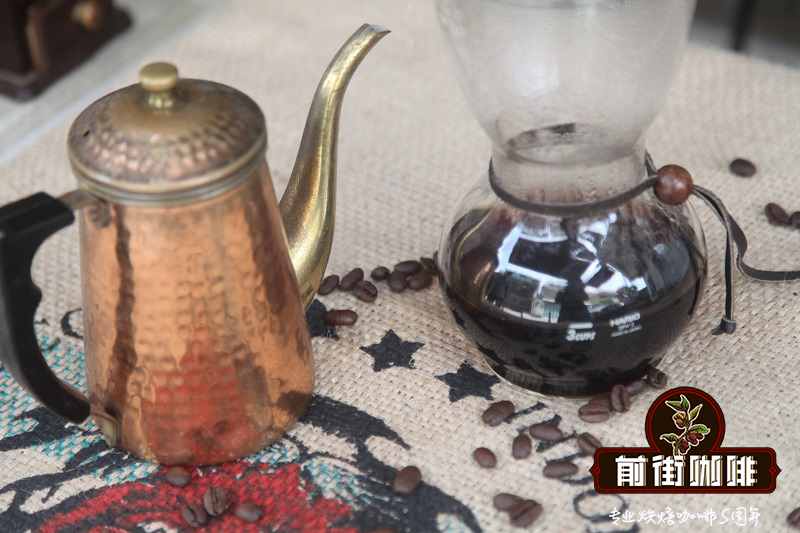How do organic coffee beans taste? where can I find organic coffee beans in Guangzhou? is organic coffee good?

Professional coffee knowledge exchange more coffee bean information please follow the coffee workshop (Wechat official account cafe_style)
A recent article written by Bentley Creative in the British coffee magazine Caffeine But is it organic?
The content mainly discusses "whether certified coffee or organic coffee can be delicious". The article quotes the ideas of many local boutique coffee makers and scholars in the UK.
After the third coffee revolution, coffee makers and consumers pay more and more attention to the variety, origin, handling and so on of coffee, as can be seen from the manors in Africa or Central and South America that appear on more and more cafes menu. Let's simply clarify a few terms: "certified coffee, organic coffee, boutique coffee".
Certified coffee: that is, coffee certified by a credible unit, the common ones are organic certification and fair trade coffee.
Organic coffee: coffee produced by organic farming, whether certified or not. It should be noted that some farmers who take the certification approach sell coffee during the three-year organic transition period, which is not considered organic coffee beans in terms of certification.
Boutique coffee: according to the definition first put forward by Ms. Erna Knutsen: "coffee beans (Special geographic microclimates produce beans with unique flavor profiles) with unique aroma are produced under special climatic and geographical conditions." It also provides the latest definition of the Fine Coffee Association of America.
In But is it organic? The author points out several interesting points. Are "organic" and "certification" really tenable? Consumers usually only care about "authentication" rather than quality when buying certified coffee. Certification has become a way to market organic agricultural products. Therefore, it has an impact on the boutique coffee industry, that is, the quality-oriented coffee industry. Because as long as you wear organic certified coffee, the price per pound is 10 cents higher than the market price (about 454 grams of raw coffee beans are 3.14 Taiwan dollars higher than the market price). And the so-called certification does not guarantee its flavor, because certification only "meets certain standards".
In addition, the author puts forward three difficulties in organic farming.
Get certified. Because the organic transition period is at least three years, they also have to pay for certification and examination, which is a burden for farmers to get into financial crisis.
Another problem is that farmers' mistrust and gains caused by misuse of certification cannot support organic production models.
Finally, there is a lack of knowledge. The research, promotion and education of organic work in most coffee-producing countries are far less than traditional commercial farming, and farmers who are inaccessible to organic farmers can only choose commercial farming. In addition, most studies on organic farming are focused on temperate climates, which are not feasible in tropical climates where coffee is grown.
Since certification has these problems, but I also want to drink good coffee, what should we consumers do?
What consumers can do is ask more questions and think for a few minutes before buying ──. We have the right to know what we are drinking and to ask for more information to solve the information inequality. Today's high-quality coffee has sufficient information about the name, producing area, secondary producing area, treatment method, variety, producer or cooperative, harvest time, bean baker and flavor description of these beans. We have to think about this: do we just want "certification" or more? If you can't provide enough information for consumers, why are these coffee beans worthy of "certification"? Or is this certification credible?
High-quality coffee is well informed.
High-quality coffee is well informed.
As far as operators are concerned, on the other hand, their practitioners are also consumers, but they must consider many factors of cost and income. If they can consider another way when selecting or importing raw beans, such as selecting high-quality raw beans and conveying their ideas to consumers, it can also create a win-win situation. At present, many operators adopt the method of "direct trade and technical support," that is, working with farmers from the producing areas to produce better quality coffee raw beans year by year, on the one hand, they can reduce unfair exploitation in the middle, on the other hand, they also get high quality coffee raw beans.
Qianjie coffee: Guangzhou bakery, the store is small but a variety of beans, you can find a variety of unknown beans, but also provide online store services. Https://shop104210103.taobao.com
Important Notice :
前街咖啡 FrontStreet Coffee has moved to new addredd:
FrontStreet Coffee Address: 315,Donghua East Road,GuangZhou
Tel:020 38364473
- Prev

Which brand of organic coffee is good? the reason for choosing organic coffee beans? is organic coffee beans expensive?
Professional coffee knowledge exchange more coffee bean information Please follow the coffee workshop (Wechat official account cafe_style) about organic coffee beans in many parts of the world, growers use pesticides to control the growth of coffee pests, and moist and foggy coffee at high altitudes are often more vulnerable to pests, so growers often use insecticide treatments. Many people think that as long as coffee is not used during the growth period,
- Next

How to certify organic coffee _ disadvantages of organic certified coffee _ how much is a pack of organic coffee beans
Professional coffee knowledge exchange more coffee bean information Please pay attention to Coffee Workshop (Wechat official account cafe_style) Organic coffee bean certification in addition to obtaining international fair trade certification, cooperatives use organic farming laws with the goal of protecting local water ecology. This sustainable agricultural law has also received organic certification in the United States, the European Union and Japan. Can be certified to prove that the product conforms to the relevant trademark
Related
- Guji coffee producing area of Guji, Ethiopia: Humbela, Shakiso, Wulaga
- What is the most expensive variety of Qiloso in BOP multi-variety group?
- How to store the coffee beans bought home?
- Why are Yemeni coffee beans so rare now?
- Ethiopian Sidamo all Red Fruit Sun Sun Santa Vini Coffee beans
- SOE is mostly sour? What does it mean? Is it a single bean? what's the difference between it and Italian blending?
- Is Italian coffee beans suitable for making hand-brewed coffee?
- How to choose coffee beans when making cold coffee? What kind of coffee beans are suitable for making cold coffee?
- Just entered the pit to make coffee, what kind of coffee beans should be chosen?
- Can only Japan buy real Blue Mountain Coffee? What are authentic Jamaican Blue Mountain coffee beans?

